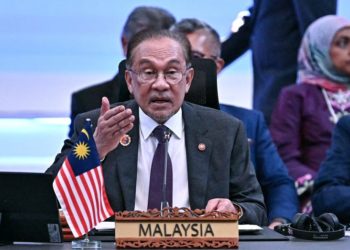Marco Rubio is doing big things under President Donald Trump — way more than nearly anyone expected.
The secretary of State was once thought of as one of the weakest players in the Trump orbit, a man who wouldn’t last long in the Cabinet because he faced many internal rivals and had major policy differences with Trump and the MAGA base.
But Rubio has deftly earned the president’s trust, enough so that Trump this week gave him another powerful job as interim national security adviser, replacing the ousted Mike Waltz. Some Trump advisers are interested in making the arrangement permanent, as POLITICO first reported.
Rubio’s esteem has risen in Trump’s eyes since the former senator has abandoned many of his past policy views, loudly defended some of Trump’s harshest policies and worked well with others who have the president’s ear.
“He took this job knowing exactly what he was getting into,” said Sen. James Risch of Idaho, the Republican chair of the Senate Foreign Relations Committee. “When you take a job like this, you are no longer a free agent like you are when you’re a United States senator. … When you take the job, you commit to make happen what your boss wants to happen, and he has real ability to do that.”
Trump, who once derided Rubio, a presidential rival, as “Li’l Marco,” now appears to see the former Florida senator as a fixer who can tackle key challenges, enough so that he’s given Rubio four concurrent jobs.
Speaking Thursday in the Rose Garden, Trump said: “When I have a problem, I call up Marco. He gets it solved.”
Rubio’s rise offers a lesson to others trying to survive under Trump, whose first term was marked by constant staff turnover. Subordinate your ego and your views to the president’s; stay quiet when you need to, but be loud in defending Trump’s point of view; and outmaneuver rivals by doing just enough to make Trump unwilling to side against you.
“It’s a snake pit, but Rubio just seemed to be a little better at navigating it,” a former Trump administration official said of the collection of officials and envoys that make up Trump’s top advisers. “You have to play well with all of these people.”
The person, like others, was granted anonymity to speak candidly about a sensitive topic.
Detractors say Rubio is rising in prominence at great cost, by deserting policies he long backed. Some argue he’s become nothing more than a Trump vassal, with little power in his own right.
“Once you let yourself get trampled on, you lose respect, you lose cache, you lose your future in Washington, and Rubio is a doormat,” said Adam Ereli, a former U.S. ambassador to Bahrain under presidents George W. Bush and Barack Obama.
Supporters argue that Rubio is a skillful politician who has achieved various heights — including serving as speaker of the Florida House of Representatives when just 35 years old, and as a U.S. senator with senior roles on the intelligence and foreign relations committees — by being flexible and receptive to voters’ views. That includes the voters who swept Trump to power.
As a result, his role has expanded. He is now secretary of State, interim national security adviser, acting administrator for USAID and acting archivist of the United States.
Asked for comment, the State Department offered the following statement: “Secretary Rubio is honored by the trust placed in him and is working every single day to execute the president’s agenda.”
Rubio has made inroads under Trump in part by not being too territorial.
There are multiple foreign policy power players on the Trump team, including special envoy Steve Witkoff, Director of National Intelligence Tulsi Gabbard, Vice President JD Vance and White House chief of staff Susie Wiles, all of whom, according to a former Trump administration official, carry more weight than their titles suggest.
But Rubio, the chief U.S. diplomat, has been able to work with the others. Rubio remains, for instance, a major voice on Iran policy, one U.S. official said, even though Witkoff leads that file.
He’s also tight with Wiles, a fellow Floridian. The pair have remained in close contact as they’ve taken their respective roles in the administration, according to two people close to the White House.
That said, Rubio is willing to knife people, too.
He pushed out Pete Marocco, a MAGA favorite, who oversaw the dismantling of the U.S. Agency for International Development, amid policy differences and complaints over Marocco’s workplace actions.
Rubio also successfully pushed back against demands from Trump adviser Elon Muskfor radical, speedy cuts to the State Department — even drawing some support from Trump despite the president’s fondness for the billionaire.
Musk’s Department of Government Efficiency team had spawned havoc as it imposed rapid cuts to USAID. The damage to the agency was well underway before Rubio took over as acting administrator, but he chose not to stop it. But Rubio did not want to repeat that chaos at State, according to a Trump administration official close to Rubio. So although Rubio has unveiled big cuts and restructuring plans for State, the moves are more methodical than what happened at USAID.
Rubio also has endeared himself to Trump by aggressively adopting many of the president’s policies, even if they clashed with his past views.
Rubio previously boosted human rights and democracy programs abroad. But Trump’s MAGA base sees such endeavors as “woke” liberal projects that are a waste of money. Now, Rubio is eliminating many programs that carry out such work.
Rubio was once viewed as a hawkish Republican who backed everything from heavy sanctions on dictatorships to some U.S. military intervention abroad. He insisted the U.S. had to support Ukraine as it fought off a Russian invasion, and was a major voice challenging the rise of China.
But since taking over as secretary of State, he has moderated such positions — pressuring Ukraine to come to a peace agreement with Russia, and suggesting casually that the U.S. needs to accept that the world is more multipolar in part because of China’s growing power.
Rubio also has tried to woo the MAGA base, including by regularly appearing on talk shows hosted by favorites of that crowd.
“He has fundamentally converted his own foreign policy views in order to serve,” said Aaron David Miller, senior fellow at the Carnegie Endowment for International Peace, who worked for both Republican and Democratic secretaries of State.
Rubio’s backers in the Trump administration say his views were evolving before he joined the Cabinet, especially as he has traveled the U.S. and listened to voters who want the government to focus more on domestic challenges. He made it clear upon landing at Foggy Bottom that he would implement the president’s vision, not his own.
“In our republic, the voters decide the course of our nation, both domestically and abroad, and they have elected Donald J. Trump as our president when it comes to foreign policy on a very clear mission,” Rubio said in his arrival speech. “That mission is to ensure that our foreign policy is centered on one thing and that is the advancement of our national interest.”
Rubio, who in the past touted his family’s Cuban immigrant story, also has enthusiastically — even pugilistically — carried out Trump’s anti-immigration policies, including signing off on revoking many student visas and implementing efforts to send migrants to a prison in El Salvador.
During a Cabinet meeting Wednesday, Rubio was asked if he’d requested that El Salvador return a man the Justice Department has admitted was mistakenly deported.
“I would never tell you that. And you know who else I’ll never tell? A judge,” Rubio replied. “The conduct of our foreign policy belongs to the president of the United States and the executive branch, not some judge.”
With Rubio expected to serve as both secretary of State and national security adviser for at least six months and likely longer, current and former State officials warned that it’s hard to do both jobs well.
Some wondered if it meant both positions would be watered down. They also questioned how Rubio would balance the demands of travel for the secretary of State with the national security adviser’s tendency to stay by the president’s side while overseeing the National Security Council.
“It’s hard to be in two places at once,” a former senior diplomat said.
There’s a bit of cockiness in some corners at the State Department, which has seen its power eroded over the decades as the NSC and Pentagon have outmaneuvered it.
“What’s the NSC? A new bureau of State?” one State official quipped.
Serving as secretary of State and national security adviser didn’t always go well for the only other person who’s done it, diplomat Henry Kissinger. During that 1970s stint, Kissinger faced questions about whether he manipulated decision-making to favor State and himself.
“People at the Defense Department and other agencies that had roles in the national security process thought that it was unfair that everything was biased in Kissinger’s favor because he held two chairs,” said John Bolton, a first-term Trump national security adviser who has fallen out with the president. “That was one reason why pressure grew on [President Gerald] Ford, ultimately, to separate them and go back to the regular order.”
Dasha Burns contributed to this report.
The post Rubio rising appeared first on Politico.




